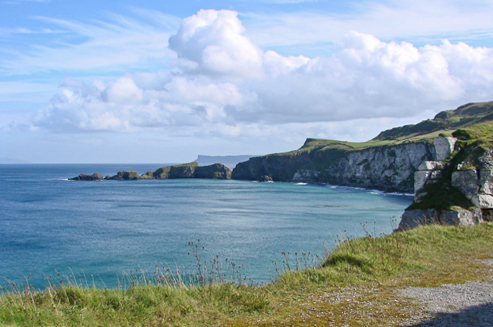When I was reading an article by my friend, Miłosz Hodun, an immigrant, I noticed many similarities regarding the image of Poland in Iceland and Northern Ireland.
So, who are we? What country do we represent? A generation pushed by Lech Walesa to discover the world from the culturally-rich Cracow holding a Cracow-bagel in our hand?
The most common associations the Irish have with Poland, apart from those mentioned above, are Pope John Paul II and trips to Auschwitz concentration camp. That’s not that bad since there is still a small number of indigenous inhabitants of Ireland who think Poland is a part of Russia or that Polish is the official language in all Eastern European countries.
It is visible, however, that Poland is perceived as a conservative country with rich history full of traditional values.
During my work for the Ireland Poland Chamber of Commerce which consists of establishing business relationships between Irish and Polish companies, I have noticed that Irish businesspeople have started to appreciate the value of human capital offered by Polish employees.
Poles who work in the Isles, be it Great Britain or Ireland, are still stereotyped. Usually, even by our fellow countrymen back in Poland, we are viewed as cheap workforce who know little English and who are only interested in saving some money to buy a new washing machine or a stroller for our child. I believe we should promote the proper image of Poland abroad but also of Polish immigrants back in Poland. Throughout Ireland, there are various professionals, young entrepreneurs, Poles working to increase the efficiency of projects promoting our country. The majority of highly-specialised Poles work in ICT, finances, accounting, economics, medical services, construction, design, pharmaceutics, transportation. If we work at Tesco or the Next chain, it means nothing more than that we perform of jobs well, we pay our taxes, we are careful about our bills and our participation in stimulating the economy of the country we have decided to live is high. Of course, it is true we would never make this kind of money in our own country – with Polish average wages at only 25% of the wages in euros or pounds.
Around 155,000 Poles live and work in Ireland, 25,000 of which in Northern Ireland. It is a large number considering the fact that the total population of Northern Ireland is 1.8 million. Each year, more graduates complete Polish universities than French universities. For example, at one of the biggest technical universities in Poland, the Silesian University of Technology, 30,000 students are currently enrolled in 48 major courses preparing them for work around Europe. Each year, nearly 40,000 graduates complete studies in ICT and go on to winning such competitions as Microsoft Imagine Cup, Google Code Jam or Top-Coder. There is much to boast about!
In terms of promoting Poland in Northern Ireland, we usually suggest Polish institutions: the Ministry of Foreign Affairs, the Polish Information and Foreign Investments Agency, the Polish Chamber of Commerce or the Polish Tourist Organisation. At the Ireland Poland Chamber of Commerce, we also have the Business Ireland Poland magazine which presents and promotes Irish-Polish initiatives. We also propagate knowledge regarding Economic Zones, Technology Parks and investment opportunities in individual provinces.
I think that Poland’s competitive identity and defining of the main Polish brands is very important. We do not present Poles through the prism of a highly officialised group of malcontents organising social evenings over some kielbasa and borscht. Meetings with the leaders of Polish organisations or the directors of Polish schools resemble meetings of farmers’ wives’ associations. Polish Cultural Week, Play Poland Film Festival in Belfast, European independent films in Queens Film Theatre – Kinoteka – are forms of good promotion. Outside of Belfast, at local cultural centres and galleries, exhibitions of Polish artists are held and a large portion of the audience are the Irish.
They also appreciate our cuisine and hospitality and they know we have beautiful summers. They have a huge respect for Poles because of the nation’s history. And yet their views about Poland are often obsolete. Most of our conversations consist of presenting the actual condition of the Polish economy and emphasising that Poland is now a modern and truly European country.
In general, Polish promotional activities are seldom noticed internationally, though there are more and more new brave and out-of-the-box campaigns like the Move Your Imagination project by the Polish Tourist Organisation, the logo of which is actually widely recognisable and easily associated with a tourist quality mark. Design and architecture trends are combined with the elements of Polish folklore, e.g. the Polish exhibition hall during Expo 2010 in Shanghai. During this year’s furniture fair in Milan, we will also see Polish designers. However, our Pavilion at the International Art Exhibition in Venice this year is probably the most acute expression of the Polish angst and the concurrent surfeit and lack of information.
Photo © Alina Holyst-Gabor


